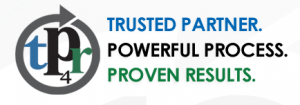T-Mobile, AT&T, Verizon and Sprint are making changes …
If you have a smartphone with a data plan, you’ve likely gotten that dreaded text alert warning you about reaching your monthly gigabyte limit. When this happens, your data slows to a trickle unless you pay an overage fee.
Even with the best cell phone plan, many of us exceed our data limit. A 2015 Pew Research Center survey found that 37% of smartphone owners use their maximum amount of monthly data at least occasionally, while 15% do so frequently. Those who did go over during one month or more in a year collectively paid their carriers at least an additional $600 million, according to an analysis by NerdWallet and smartphone app My Data Manager, which helps users keep track of their data consumption.
Carriers making changes
Consumers don’t like paying for their data overages, and wireless carriers are listening. In 2014 and 2015, respectively, T-Mobile and Sprint began offering unlimited plans that cut overage fees in favor of slower 2G data once the caps are reached. Over the summer, Verizon and AT&T, the nation’s two top carriers by number of customers, also rolled out plans that trade overage fees for slower data speeds, known as throttling.
If you have a so-called legacy plan, meaning you haven’t switched to one of the new plans, it’s likely you’re still subject to overage fees at the two top carriers. But the study, using data from My Data Manager, found that for the majority of consumers, switching to the new, usually larger data plan isn’t worth it. You’ll typically pay more in higher monthly charges than you would have paid for the occasional overage fee.
To determine this, NerdWallet and My Data Manager looked at the cost of legacy family and individual plans through Verizon and AT&T, and compared them with the new plans. We assumed an average usage of 1.8GB per month for an individual plan and 4.3GB per month for a family plan with an average of 2.4 lines, based on data obtained from My Data Manager. The full methodology can be seen below. Here’s what we found.
The new Verizon and AT&T plans
Verizon and AT&T previously charged overage fees at an average rate of $15 per GB, regardless of the plan. Now, if you activate the “safety mode” in your account preferences for the Verizon Plan, you can avoid data overage fees. After you reach your monthly gigabyte limit, which varies depending on the version of the plan you choose, your data is throttled to 2G speeds instead of getting hit with an overage fee. It’s worth noting this plan allows you to carry over any unused data to the following month only.
AT&T has taken an approach that’s similar to T-Mobile and Sprint with its new Mobile Share Advantage plans. In the event of a data overage, AT&T throttles data to 2G speeds until the next billing cycle, regardless of your plan. It’s automatic, so you don’t have to do anything to avoid overage fees.
When does it pay to switch to the new plans?
If you’re on an average-sized plan and your data overages exceed 8GB per year, choosing one of the new plans will save you money, according to NerdWallet and My Data Manager’s analysis. The individual Verizon Plan will save you money if you have an average plan, even if you never go over your data limit. Otherwise, the new Verizon plans and AT&T’s Mobile Share Advantage plans won’t save you money. In fact, most consumers on legacy plans would be better off sticking to them and paying the occasional overage fee.
Here’s how it breaks down:
Verizon Individual plans
For Verizon individual plan holders who use an average of 1.8GB per month, the Verizon Plan is a better deal. Assuming you were on a legacy 3GB data plan before, you can step down to a 2GB plan, which saves $10 per month over the old pricing. Previously, Verizon only offered 1GB and 3GB options. Activate the safety mode, and presto, no more overage fees — though, if you do go over the data limit, the 2G mode is awfully slow. We’ll discuss that in a moment.
AT&T individual plan holders face a different set of options. For those who exceed their data limit four times or fewer during the year, it’s actually cheaper to pay the overage fees than it is to switch plans, based on the average usage figures we found. This is because consumers who use that average 1.8GB per month and were previously on a 2GB plan would now have to upgrade to a 3GB plan under Mobile Share Advantage — meaning they’d have to pay for an extra 1.2GB that they might not need. (AT&T’s new plans have only 1GB, 3GB or higher options.) And there’s automatic throttling once the data limits are exceeded.
Watch out for throttling
Keep in mind that, for consumers used to 4G LTE data, throttled 2G speed could be problematic, especially for the 10% of Americans for whom their smartphone is their only access to the internet. When you’re using your phone for everything from job applications to paying bills, 2G is very slow. By comparison, browsing 30 webpages would take 2.8 minutes at 2G speed, while doing the same at 4G LTE takes only one second, according to Verizon.
If you’re not sure how much data you’re using, you can analyze your usage with My Data Manager or one of the other apps available, and then evaluate your needs to make sure you have the best cell phone plan for you.
Resource: NERDWALLET: https://www.nerdwallet.com/blog/utilities/what-no-overage-fee-cell-phone-plans-mean-for-you/
At LIMITLESS we are your trusted partner and understand how to best help our Clients reduce costs, while ensuring you stay highly effective and efficient with your services. We strive daily to help you become more financially sound, putting more money back in your wallet. The average savings we find our clients is between 17% – 36%.
We have saved companies tens of thousands and even in some cases millions on their telecom, utility and vendor expenses with our proven cost reduction process.
At LIMITLESS we use our Powerful Process to identify cost savings, improving and negotiating contracts, finding billing errors and recovering billing errors. Our Proven Results allow our Clients to reinvest the “savings” into growth initiatives or apply these “found profits” to their bottom line.
Our clients realize that they derive the most benefit by concentrating their efforts on their core service or product. Most business people simply do not have the time or in-house expertise to analyze technology, suppliers and pricing alternatives.
Contact LIMITLESS today for a FREE CONSULTATION to discover how to get control of your unmanaged spend and reduce expenditure on business services.
Other Ways to Connect with Us.
Request more info: http://limitlesstechnology.com/contact-us/
Facebook: https://www.facebook.com/limitlesstech
Linkedin: https://www.linkedin.com/company/limitless-technology





